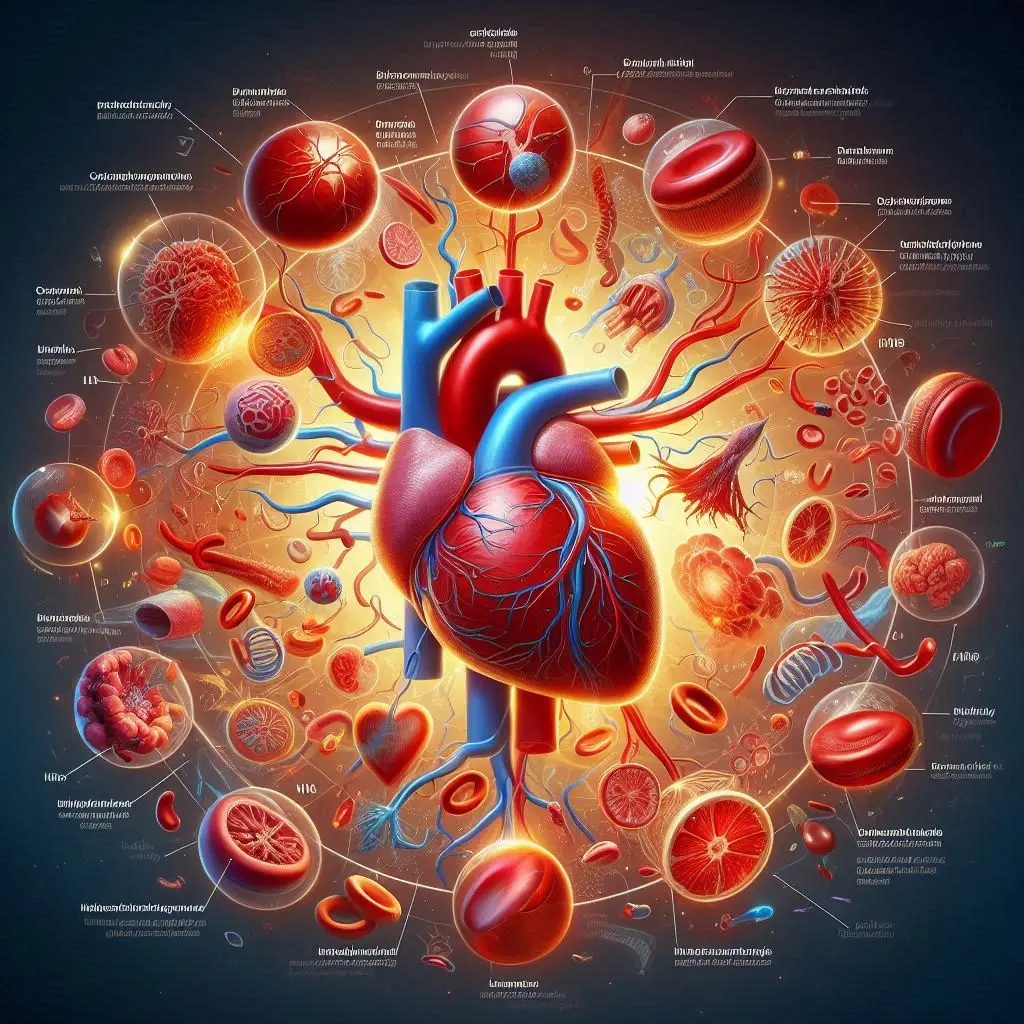Heart Regulation: Nervous Control, Temperature Effects, and Blood Pressure Dynamics

Introduction
The heart is a vital organ responsible for pumping oxygenated blood throughout the body. Its function is intricately controlled by various systems, primarily the nervous and endocrine systems. Understanding how these systems regulate heart activity, along with the effects of external factors such as temperature and stress, is essential for comprehending cardiovascular health. Additionally, blood pressure and hypertension play crucial roles in heart function and overall health. This article delves into these aspects, providing a comprehensive overview of heart regulation.
Nervous Regulation of the Heart
Autonomic Nervous System
The autonomic nervous system (ANS) is pivotal in regulating heart function. It consists of two main branches: the sympathetic and parasympathetic nervous systems.
Sympathetic Nervous System
The sympathetic nervous system prepares the body for ‘fight or flight’ responses. When activated, it increases heart rate and contractility through the release of neurotransmitters like norepinephrine. This neurotransmitter binds to beta-1 adrenergic receptors in the heart, leading to:
- Increased Heart Rate (Chronotropy): Norepinephrine accelerates the rate of spontaneous depolarization in the sinoatrial (SA) node, increasing heart rate.
- Increased Contractility (Inotropy): Enhanced calcium influx leads to stronger heart contractions, improving cardiac output.
Parasympathetic Nervous System
Conversely, the parasympathetic nervous system promotes ‘rest and digest’ activities. It primarily uses acetylcholine to exert its effects. Activation of the parasympathetic system leads to:
- Decreased Heart Rate: Acetylcholine binds to muscarinic receptors in the heart, slowing the heart rate by reducing the rate of depolarization in the SA node.
- Reduced Contractility: While the effect on contractility is less pronounced than that of the sympathetic system, it still plays a role in modulating heart function.
Integration of Nervous Inputs
The cardiovascular center in the medulla oblongata integrates inputs from various sensory receptors, including baroreceptors and chemoreceptors, to maintain homeostasis. This integration allows the heart to respond appropriately to changes in blood pressure, oxygen levels, and carbon dioxide concentrations.
Chemical Regulation of the Heart
In addition to neural regulation, several hormones and chemicals significantly influence heart function.
Hormonal Influences
- Epinephrine and Norepinephrine: Released from the adrenal medulla during stress, these hormones enhance heart rate and contractility, similar to sympathetic nervous system activation.
- Thyroid Hormones: Thyroxine increases heart rate and cardiac output by enhancing the sensitivity of the heart to catecholamines.
- Atrial Natriuretic Peptide (ANP): Released by the atria in response to increased blood volume, ANP promotes vasodilation and reduces blood pressure.
Electrolyte Balance
Electrolytes such as potassium, calcium, and sodium are crucial for maintaining normal heart function. Abnormal levels can lead to arrhythmias or other cardiac issues:
- Calcium: Essential for myocardial contraction; too much or too little can disrupt normal heart rhythms.
- Potassium: Critical for repolarization; imbalances can lead to dangerous arrhythmias.
Effects of Temperature on Heart Function
Temperature significantly influences heart rate and overall cardiac function.
Cold Temperatures
In cold conditions, the body conserves heat, leading to:
- Decreased Heart Rate: The parasympathetic system is more active, slowing the heart rate.
- Increased Peripheral Resistance: Blood vessels constrict to preserve heat, which can increase blood pressure.
Warm Temperatures
Conversely, warm temperatures have the following effects:
- Increased Heart Rate: The body requires more oxygen and nutrients, prompting an increase in heart rate to meet metabolic demands.
- Vasodilation: Blood vessels widen to dissipate heat, which can lower blood pressure.
Extreme Temperatures
Extreme temperature conditions can lead to significant cardiovascular stress. Hyperthermia (overheating) can cause dehydration and increased heart rate, while hypothermia (excessive cooling) can lead to bradycardia (abnormally slow heart rate).
Effects of Stress on Heart Function
Stress is a significant factor influencing cardiovascular health.
Acute Stress
During acute stress, the body activates the sympathetic nervous system, resulting in:
- Increased Heart Rate and Blood Pressure: The release of catecholamines prepares the body for immediate action.
- Enhanced Cardiac Output: Increased demand for oxygen and nutrients leads to a temporary boost in heart function.
Chronic Stress
Chronic stress can have detrimental effects on heart health, including:
- Hypertension: Prolonged sympathetic activation can lead to sustained high blood pressure.
- Increased Risk of Heart Disease: Chronic stress is associated with inflammation and other risk factors for cardiovascular disease.
Blood Pressure and Hypertension
Understanding Blood Pressure
Blood pressure is the force exerted by circulating blood on the walls of blood vessels. It is measured in millimeters of mercury (mmHg) and is expressed as systolic over diastolic pressure (e.g., 120/80 mmHg).
Regulation of Blood Pressure
Blood pressure is regulated by a combination of neural, hormonal, and renal mechanisms. Key factors include:
- Baroreceptors: Located in the carotid arteries and aorta, these receptors detect changes in blood pressure and send signals to the cardiovascular center to adjust heart rate and vessel diameter.
- Renin-Angiotensin-Aldosterone System (RAAS): This hormonal system regulates blood pressure by influencing blood volume and vascular resistance.
Hypertension
Hypertension, or high blood pressure, is a chronic condition that can lead to serious health issues, including heart disease and stroke.
Causes of Hypertension
- Genetic Factors: Family history can increase susceptibility.
- Lifestyle Factors: Poor diet, lack of physical activity, and obesity contribute significantly to hypertension.
- Stress: Chronic stress can elevate blood pressure over time.
Management of Hypertension
Effective management includes lifestyle modifications such as:
- Dietary Changes: A diet rich in fruits, vegetables, whole grains, and low in sodium can help lower blood pressure.
- Regular Exercise: Physical activity strengthens the heart and helps maintain a healthy weight.
- Medication: In some cases, antihypertensive medications may be necessary to control blood pressure.
Conclusion
The regulation of heart function is a complex interplay between the nervous and endocrine systems, influenced by various external factors such as temperature and stress. Understanding these mechanisms is crucial for managing cardiovascular health and preventing conditions like hypertension. By maintaining a healthy lifestyle and being aware of the factors that affect heart function, individuals can take proactive steps toward better heart health.
For more pearls of Vets Wisdom:





Responses